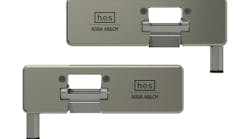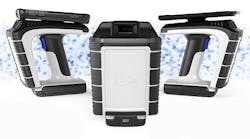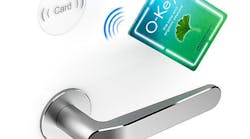At the recent ISC West, access control technologies were demonstrated using NFC (Near Field Communications). This technology enables NFC enabled smart phones to become an access control credential that can gain secure access into facilities whose electromechanical lock hardware is equipped to accommodate the technology. NFC is being touted as the more practical future to proximity and SmartCard ID card credentials.
This future is being driven by more than just the technology and convenience. Several research studies have determined that college students were more responsible with their “phones” than with their school’s identification card or other personal possessions. This included things like unwillingness to share their phone, whereas they were not unwilling to share their school ID card. For many, it is as if their phone has become an integral appendage. When they are separated from their “phone”, they feel as if they have lost a significant part of themselves.
I know from personal experience that my granddaughter becomes “stressed” when she is separated from her phone for any period of time. The level of stress increases with the amount of time she is separated from her phone.
This dedication to their phones insures that if it is ever misplaced, lost or stolen, they will always notice it missing within a very short time period. Then immediately do whatever is necessary to find the phone. This response and action is a whole lot faster than they will notice the disappearance of an ID card or badge.
In addition, since most college aged students lock their smart phones, the process required to unlock their phone is being considered by some a second (dual) credential.





